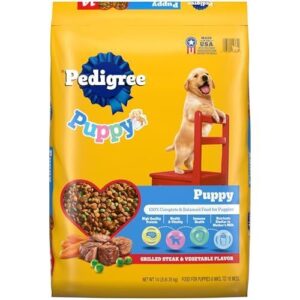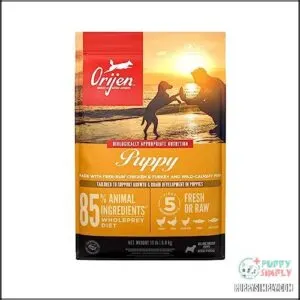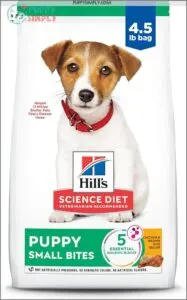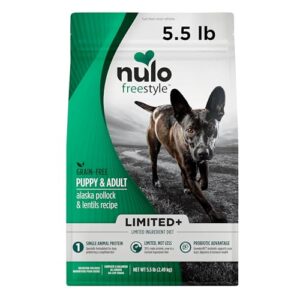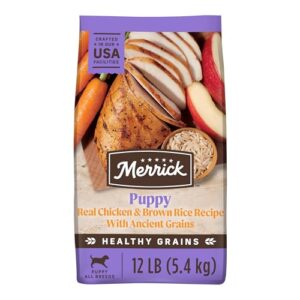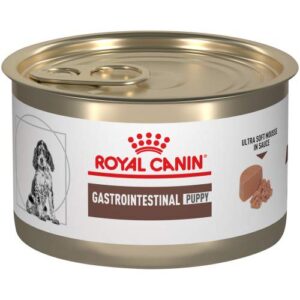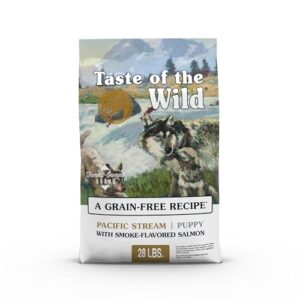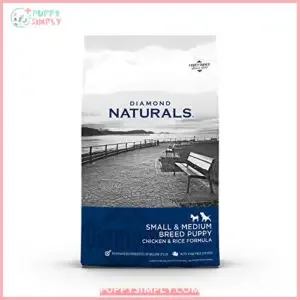This site is supported by our readers. We may earn a commission, at no cost to you, if you purchase through links.
Your small breed puppy’s brain grows faster in the first six months than at any other life stage—which means the nutritional decisions you make right now shape their cognitive development, immune resilience, and lifelong health trajectory.
Yet most puppy owners don’t realize that small breed formulas aren’t just about smaller kibble size; they’re scientifically calibrated to meet the accelerated metabolic demands and compressed growth windows unique to tiny dogs. The wrong protein ratios, inadequate DHA levels, or poorly balanced calcium-to-phosphorus content can compromise skeletal integrity or organ function during these critical developmental weeks.
With countless small breed puppy food formulas flooding the market—each making bold claims about premium ingredients and superior nutrition—you need evidence-based guidance to separate genuinely excellent products from clever marketing. Understanding what your puppy’s body actually requires, and which formulas deliver those nutrients in bioavailable forms, transforms feeding from guesswork into a strategic advantage for your dog’s future.
Table Of Contents
- Key Takeaways
- Top 8 Small Breed Puppy Food Formulas
- Key Nutritional Needs for Small Breed Puppies
- How to Choose The Best Formula
- Feeding Guidelines for Small Breed Puppies
- Common Mistakes in Feeding Small Breed Puppies
- Frequently Asked Questions (FAQs)
- What should I feed a small breed puppy?
- What is the best ratio for puppy food?
- Can you mix puppy formula with puppy food?
- Can small breed puppies have treats in their diet too?
- How often should I change my puppys food formula?
- What are signs that my puppy has a food allergy?
- How often should I change puppy food brands?
- What supplements should small breed puppies take daily?
- Conclusion
Key Takeaways
- Small breed puppies require formulas with at least 22.5% protein and 8.5% fat on a dry-matter basis to support their accelerated metabolic demands and compressed growth windows, with optimal fat-to-protein ratios around 60-82% preventing both nutrient deficiencies and obesity-related complications.
- DHA from fish oil, balanced calcium-to-phosphorus ratios between 1:1 and 1.8:1, and highly digestible animal proteins are non-negotiable components that directly influence brain development, skeletal integrity, and lifelong immune function during the critical first six to twelve months.
- AAFCO nutritional adequacy statements labeled for “growth” or “all life stages” confirm that formulas meet minimum standards through feeding trials or nutrient profiles, though premium ingredients like named muscle meats and chelated minerals significantly improve bioavailability compared to by-products and generic fillers.
- Feeding schedules should progress from 4-6 small meals daily under three months to two meals by twelve months, with portion sizes adjusted weekly based on body condition scores rather than feeding charts alone, since individual caloric needs can vary by up to 50% even within the same breed.
Top 8 Small Breed Puppy Food Formulas
You want a puppy food that nourishes your small breed’s rapid growth without compromising on quality or safety. After reviewing dozens of formulas based on protein content, ingredient quality, and life-stage appropriateness, I’ve identified eight options that meet the nutritional demands of small breed puppies.
Here’s what made each formula stand out in my analysis.
1. Pedigree Puppy Steak Food
Pedigree Puppy Growth & Protection Dry Dog Food in steak flavor provides AAFCO-approved nutrition for growth across all breed sizes, including small-breed puppies from 6 weeks to 18 months. You’ll find it contains approximately 21% protein and 10% fat on an as-fed basis, with added DHA for brain development and calcium for bone support. The formula avoids high fructose corn syrup and artificial flavors.
While Pedigree ingredients include animal by-products and wheat gluten rather than premium muscle meats, the brand maintains U.S. manufacturing standards.
Importantly, a 2012 Food Recall affected only specific weight-management canned products—not puppy lines—demonstrating the importance of Pet Safety vigilance when selecting any puppy food for your small companion.
Best For: Budget-conscious puppy owners seeking AAFCO-approved nutrition for small to large breed puppies during their first 18 months of growth.
- Meets AAFCO standards with 36 vitamins, minerals, and amino acids plus added DHA for brain development
- Affordable daily feeding option with no artificial flavors, high fructose corn syrup, or added sugars
- Manufactured in the U.S. with crunchy kibble that may help with dental cleaning
- Uses animal by-products and wheat gluten instead of premium whole-meat sources
- Some customers report digestive issues including diarrhea and inconsistent eating habits
- Bag lacks a reliable zip seal, which can affect freshness over time
2. High Protein Puppy Dog Food
ORIJEN Puppy Recipe represents a high-protein approach to small breed puppy food, delivering 85% animal ingredients with fresh chicken, turkey, and salmon as the first five components. This grain-free dog food provides approximately 38% crude protein on a dry matter basis—well above the AAFCO minimum of 22.5%—ensuring your puppy receives complete amino acids for muscle development and immune function.
The nutrient balance aids digestive health through high bioavailability, though you’ll want to shift gradually to avoid gastrointestinal upset in sensitive puppies.
Best For: Puppy owners prioritizing premium animal-based nutrition who want grain-free food with exceptional protein levels to support rapid growth and muscle development.
- Delivers 38% crude protein from 85% animal ingredients like fresh chicken, turkey, and salmon, exceeding AAFCO standards and providing complete amino acids for healthy development
- High bioavailability of animal proteins (80-92% digestibility) ensures your puppy efficiently absorbs nutrients for immune function and lean muscle growth
- Grain-free formula works well for puppies with sensitive stomachs or food allergies, avoiding common fillers like corn, soy, and wheat
- Premium ingredients come with a higher price tag compared to standard puppy foods, which may strain your budget over time
- Strong meat smell from high-quality protein sources can be off-putting and requires careful storage to maintain freshness
- Very high protein content (38%) exceeds the optimal 25-30% range and may cause digestive issues like loose stools during transition, especially in sensitive puppies
3. Hills Puppy Food Chicken Brown Rice
If you’re looking for a formula backed by clinical research, Hill’s Science Diet Puppy Small Bites Chicken & Brown Rice delivers 27.8% crude protein and 19% fat—ratios that fuel high metabolic demands without overloading your puppy’s system. The small kibble design reduces choking hazards, while DHA from fish oil promotes brain and eye development.
Chicken benefits include essential amino acids for lean muscle, and brown rice provides digestible energy.
With balanced calcium (1.54%) and phosphorus (1.26%), Hills Nutrition promotes skeletal growth within safe ranges for small breed puppy food.
Best For: Small-breed puppy owners who want vet-recommended nutrition with DHA for brain development and kibble sized for tiny mouths.
- High protein (27.8%) and fat (19%) content supports fast growth and active energy levels in puppies
- DHA from fish oil specifically targets brain and eye development during critical early months
- Balanced calcium-to-phosphorus ratio (1.54% to 1.26%) promotes healthy bone growth without overdoing minerals
- Contains common allergens like chicken, wheat, corn, and soy that may trigger sensitivities in some puppies
- At $19.99, it’s pricier than many competitor puppy foods on the market
- Hill’s had a major recall in 2019-2020 for excessive vitamin D in some products, raising past safety concerns
4. Grain Free Dog Food Formula
When your small breed puppy food needs shift toward grain-free recipes, you’ll find formulas like Nulo’s Alaska Pollock & Lentils offer 30% crude protein and omega-3 support without common allergens.
Grain benefits are debated, but grain-free recipes targeting dog allergies and food sensitivities can improve palatability and blood sugar control in susceptible puppies.
High-protein, nutrient balance comes from pollock meal and lentils, though pulse-based diets warrant monitoring—plasma methionine levels may drop after prolonged feeding.
You’ll appreciate the probiotic inclusion for gut health in grain-free puppy nutrition formulations.
Best For: Pet owners with small breed puppies who have food sensitivities or need a high-protein, grain-free diet that supports digestion and immune health.
- Single-protein formula with 30% crude protein helps build lean muscle while reducing allergy triggers for dogs with sensitivities to common ingredients like beef or chicken.
- Includes probiotics and omega fatty acids that support healthy digestion, skin, and coat—important for growing puppies.
- Made in the USA without artificial additives, offering clean nutrition with antioxidants for immune support.
- Some dogs may experience digestive upset like vomiting or diarrhea when switching to this formula, especially if transitioning too quickly.
- The fishy smell and taste can cause bad breath and may not appeal to picky eaters or their owners.
- Pulse-based grain-free diets have been linked to potential heart health concerns in some studies, requiring careful monitoring during long-term feeding.
5. Merrick Healthy Puppy Food Recipe
You’ll find Merrick Healthy Grains Puppy delivers 27% crude protein from deboned chicken and chicken meal—meeting puppy nutrition standards for small breed growth without corn, wheat, or soy.
The formula provides roughly 480 kcal per cup with brown rice and oatmeal for steady energy release, plus DHA for brain development and elevated glucosamine for joint support.
Though marketed as suitable for all breeds, its grain-inclusive profile offers an alternative to grain-free diets while maintaining food safety through domestic manufacturing and probiotic fortification for digestive health.
Best For: Puppy owners looking for a grain-inclusive formula with real chicken as the first ingredient, especially those wanting to avoid corn, wheat, and soy while supporting joint health and brain development.
- High protein content (27%) from deboned chicken and chicken meal supports growing puppies’ muscle development
- Includes DHA for brain development and high levels of glucosamine and chondroitin for hip and joint support during rapid growth phases
- Made in the USA with whole grains like brown rice and oatmeal for steady energy, plus probiotics for digestive health
- Some puppies may experience digestive issues like diarrhea or vomiting when transitioning to this food
- Price point is higher than many competing puppy foods, with mixed customer opinions on overall value
- Not specifically formulated for large-breed puppies who need controlled calcium levels to prevent developmental issues
6. Royal Canin Puppy Gastro Food
If your puppy’s tummy seems delicate, Royal Canin Puppy Gastro Food stands out for its targeted Digestive Support and Gastrointestinal Health. This Small Breed Puppy Food combines highly digestible proteins, prebiotics, and omega-3s to nurture growth and ease the shift from milk to solids.
You’ll notice its high energy density and adaptable nutrition—ideal for puppies with decreased appetites or those needing extra care. Whether you’re seeking GrainFree or HighProtein options, Royal Canin’s formula prioritizes Puppy Nutrition and Diet without sacrificing quality.
Best For: Puppies with sensitive stomachs or gastrointestinal issues who need extra digestive support during their critical growth phase.
- Highly digestible proteins and prebiotics work together to support healthy digestion and optimal stool quality, making it easier on delicate tummies.
- High energy formula means your puppy gets more nutrition in smaller portions, perfect for pups with reduced appetites or those recovering from GI upset.
- Omega-3 fatty acids from fish oil help manage gut health while supporting overall growth and development in young dogs.
- Requires a vet consultation before use, so it’s not something you can just grab off the shelf without professional guidance.
- Specialized formula means it may not work for puppies dealing with other health conditions beyond gastrointestinal sensitivities.
- Limited ingredient profile might not suit all puppies, especially those with multiple dietary needs or specific allergies.
7. Grain Free Salmon Puppy Food
Salmon-based grain-free formulas deliver concentrated omega fatty acids and fish oil benefits that support your puppy’s skin, coat, and neurologic development. When managing puppy allergies or seeking grain-free diets, these high-protein recipes replace cereal grains with legumes and tubers while meeting AAFCO growth standards. You’ll find small breed puppy food options with EPA and DHA levels specifically calibrated for developing brains.
However, remain aware that grain-free dog food formulations have drawn FDA scrutiny regarding potential DCM associations, so consulting your veterinarian about puppy nutrition and diet remains essential.
Best For: Puppy owners seeking a high-protein, fish-based diet rich in omega fatty acids for skin and coat health, particularly those managing grain sensitivities or preferring grain-free nutrition for their growing dogs.
- Real salmon as the #1 ingredient provides 27% protein plus natural EPA and DHA omega-3s that support brain development, healthy skin, and a shiny coat
- Grain-free formula uses legumes and potatoes instead of wheat, corn, or soy, making it suitable for puppies with grain sensitivities or dietary restrictions
- Meets AAFCO standards for all life stages including puppy growth, with added probiotics and antioxidants to support digestion and immune health
- Grain-free diets containing peas and lentils have been associated with FDA reports on dilated cardiomyopathy (DCM) in dogs, warranting veterinary consultation before use
- Higher price point at $59.99 for 28 lbs compared to grain-inclusive puppy foods, which may not fit all budgets
- Some puppies may not tolerate the legume-heavy carbohydrate sources or may dislike the smoke-flavored salmon taste
8. Diamond Naturals Puppy Food Formula
When you’re comparing small breed puppy food options, Diamond Naturals delivers 32% minimum crude protein and 22% fat—exceeding AAFCO growth requirements while supporting nutrient density demands of fast metabolisms. You’ll notice real cage-free chicken leads the ingredient panel, backed by DHA-rich salmon oil for puppy development and proprietary K9 Strain probiotics targeting digestive health.
The formula’s chelated minerals improve bioavailability, while small kibble size accommodates tiny jaws. This breed specificity makes it suitable for puppies under 50 pounds, though consulting your veterinarian about individual puppy nutrition and health remains advisable.
Best For: Owners of small and medium breed puppies who want a protein-rich, AAFCO-compliant formula with probiotics and DHA support at a reasonable price point.
- High protein (32%) and fat (22%) content exceeds AAFCO requirements and supports the faster metabolisms of small breed puppies
- Includes functional ingredients like DHA for brain development, K9 Strain probiotics for digestion, and chelated minerals for better nutrient absorption
- Small kibble size specifically designed for smaller jaws, with real cage-free chicken as the first ingredient
- Some owners and veterinarians consider it a good value option rather than a premium choice for growing puppies
- Price point of $34.99 for 18 pounds may be higher than budget alternatives
- Packaging quality concerns reported by some users, including bags that don’t seal properly
Key Nutritional Needs for Small Breed Puppies
Your small breed puppy isn’t just a miniature version of a larger dog—they’ve unique nutritional requirements that fuel their rapid growth and sky-high metabolism. Getting the balance right between protein, fat, and essential nutrients can mean the difference between a thriving puppy and one struggling with health issues down the road.
Small breed puppies have unique nutritional needs that demand precise protein, fat, and nutrient balance to fuel their rapid growth and high metabolism
Let’s break down what your little one actually needs in their bowl to set them up for a healthy life.
Importance of High-Quality Protein Sources
High-quality protein sources form the foundation of puppy nutrition and health because they deliver exceptional amino acid profiles that support muscle development, immune function, and coat health. You’ll want formulas with named meats like chicken or lamb—these offer excellent protein digestibility and nutrient bioavailability.
Growth diets should provide at least 56.3 grams of protein per 1,000 kcal to meet nutrient requirements and fuel your puppy’s energy metabolism effectively. A balanced diet that includes optimal nutrition guidelines is essential for supporting a puppy’s overall development and long-term health.
Favorable Fat-to-Protein Ratios
You’ll find that ideal canine nutrition depends heavily on achieving the right nutrient ratios—specifically, fat content balanced against protein balance.
For small breed puppy food, target formulas delivering 28–33% protein with 19–23% fat on a dry-matter basis, which yields fat-to-protein ratios around 60–82%. This energy density assists your puppy’s metabolism while meeting dietary requirements for puppies without risking obesity through excessive calorie management.
Ensuring the right puppy food quality is vital for their development.
Role of Omega Fatty Acids and Antioxidants
Beyond macronutrient balance, your puppy’s formula should deliver omega-3 fatty acids—especially DHA—to support brain development and visual function during rapid neural growth. AAFCO growth profiles now mandate preformed EPA and DHA, recognizing fatty acid benefits that improve cognitive performance.
Small breeds face higher oxidative stress due to elevated metabolic rates, so look for antioxidant supplements like vitamin E and beta-carotene that strengthen immune support and cellular protection throughout canine development and growth.
Essential Vitamins and Minerals
Your puppy’s nutrient-dense formula must prevent vitamin deficiency and maintain mineral balance across all life stages. Fat-soluble vitamins (A, D, E, K) require adequate dietary fat for nutrient absorption, while B vitamins support metabolism during rapid growth.
Proper electrolyte needs—sodium, potassium, magnesium—keep your puppy’s systems functioning, and trace minerals like zinc and copper are critical for immune health despite their tiny daily requirements in dog nutrition and health.
Small Kibble Size and Digestibility
While mineral balance maintains internal systems, kibble texture and particle dimensions directly affect how your small breed puppy extracts nutrients from each meal. Commercial formulas sized at 7–8 millimeters match your puppy’s jaw structure, promoting thorough chewing that enhances oral health and digestion rates. Smaller pieces with higher digestibility deliver concentrated energy within limited stomach capacity, improving nutrient absorption and gut wellness—key priorities in small breed puppy care.
Why kibble geometry matters for your puppy:
- Appropriately sized pieces encourage steady chewing rather than gulping, supporting safer swallowing
- Crunchy textures mechanically scrape plaque and tartar, reducing periodontal disease risk over time
- Energy-dense formulations meet metabolic demands without overloading tiny stomachs
- Highly digestible recipes produce firmer stools and minimize gastrointestinal burden
- Shorter digestive transit times in small breeds require rapid, complete nutrient extraction from each kibble
How to Choose The Best Formula
Choosing the right formula for your small breed puppy isn’t just about picking a bag off the shelf—it requires understanding what’s actually inside that food and how it aligns with your puppy’s specific needs. You’ll want to focus on quality ingredients, regulatory standards, and your individual puppy’s digestive tolerance.
Let’s walk through the key factors that’ll help you make an informed decision.
Avoiding Fillers and Artificial Additives
You’ll want to scrutinize ingredient panels carefully to verify your puppy receives truly natural ingredients that support healthy digestion. Over 40% of commercial formulas list corn, wheat, or soy as primary fillers, diluting nutrient balance rather than providing a nutrient-dense formula.
Opt for preservative-free options using mixed tocopherols instead of BHA or BHT, and choose artificial-free high-protein dog food with clearly named meats, not generic “by-product” meals.
Selecting Formulas With AAFCO Approval
Look for the AAFCO nutritional adequacy statement on every puppy food label—it confirms the formula meets nutrient profiles for growth or passed feeding trials under regulatory oversight.
Small breed puppies need diets labeled “growth” or “all life stages,” ensuring at least 22.5% protein and 8.5% fat on a dry matter basis. Label compliance with AAFCO standards guarantees your pup receives complete, balanced nutrition customized to feeding guidelines for small breeds.
Considering Food Allergies and Sensitivities
When pruritus persists despite treatment, don’t overlook food allergies—cutaneous adverse reactions affect approximately 18% of itchy dogs and may trigger sensitivity testing through dietary trials. Hypoallergenic diets featuring limited ingredients and novel proteins help identify culprits, while omega benefits from EPA and DHA reduce inflammation in sensitive skin stomach cases.
Grain-free dog food and specialized puppy food formulas minimize exposure to common dog food ingredients and safety concerns, supporting puppies with allergies.
Feeding Guidelines for Small Breed Puppies
Feeding your small breed puppy isn’t just about filling a bowl—it’s about establishing patterns that support their rapid growth and high metabolism. You’ll need to understand how often to feed, how much to offer, and when to make the shift to adult food.
Let’s walk through the essential guidelines that’ll help you nourish your puppy properly from day one.
Recommended Feeding Schedules
Your small breed puppy’s feeding schedule plays a vital role in supporting healthy digestion patterns and preventing hypoglycemia. Meal frequency directly influences nutrient balance and energy stability throughout each day.
Here’s what you’ll want to follow:
- Under 3 months: Offer 4–6 small meals daily to match their rapid metabolism and limited stomach capacity
- 3–6 months: Reduce to 3 meals at consistent intervals (usually morning, midday, and evening)
- 6–12 months: Shift to 2 meals spaced 8–12 hours apart
- Evening timing: Serve the final meal around 5:00–6:00 p.m. to allow digestion before bedtime
Structured puppy routines help you monitor intake, support house-training, and maintain stable blood glucose—especially important for small breed puppies prone to energy fluctuations.
Determining The Right Portion Size
Getting portion control right can mean the difference between healthy growth and serious metabolic problems. Your small breed puppy’s caloric intake shifts dramatically through growth stages—a 5-pound puppy needs approximately 392 kilocalories daily, while a 10-pound puppy requires 433–649 kilocalories depending on activity.
Individual dietary needs can vary by up to 50 percent from feeding charts, so you’ll need to monitor body condition weekly and adjust puppy feeding portions accordingly to maintain nutrient balance.
| Body Weight | Daily Calories | Typical Portion |
|---|---|---|
| 2.5 lbs | 150–226 kcal | ~0.4–0.6 cups |
| 5 lbs | 261–392 kcal | ~0.7–1.0 cups |
| 10 lbs | 433–649 kcal | ~1.1–1.6 cups |
When to Transition to Adult Food
Shift timing depends on your puppy’s growth trajectory rather than calendar age alone. Most small breed puppies under 20–25 pounds reach skeletal maturity between 9 and 12 months, signaling readiness for adult food introduction.
Monitor body condition scores biweekly—when your puppy maintains stable weight, shows minimal monthly gains, and reaches projected adult height, you can begin the nutrient shift from growth-supportive puppy food to maintenance formulas.
Importance of Fresh Water Availability
Your puppy needs continuous access to fresh, clean water—not just at mealtimes. Small breed puppies require approximately 40–60 milliliters per kilogram of body weight daily, with higher demands during activity and warm weather.
Dehydration risks escalate quickly in these tiny dogs due to their elevated metabolic rates and surface-area-to-volume ratios. Refresh water bowls multiple times daily to guarantee proper puppy hydration and support healthy development.
Common Mistakes in Feeding Small Breed Puppies
Even well-intentioned puppy owners can make feeding errors that compromise their small breed’s health and development. These mistakes range from portion control issues to overlooking essential veterinary guidance, and they’re more common than you might think.
Let’s examine the most frequent missteps so you can avoid them with your growing pup.
Overfeeding and Obesity Risks
Ironically, enthusiastic owners who mean well often tip the scales toward obesity by overfeeding energy-dense puppy food formulas. You’ll want to control portion size carefully—even modest daily excess above recommended caloric intake accumulates into significant weight gain over weeks.
Free-feeding and frequent treats undermine obesity prevention and healthy weight management, increasing your small breed pup’s risk of diabetes, joint disease, and shortened lifespan.
Underfeeding and Nutrient Deficiencies
On the opposite end, withholding adequate portions creates equally serious problems. When you underfeed puppy food to your small breed, you risk protein deficit and growth impairment that permanently affects skeletal development. Toy breeds especially face hypoglycemia risk—blood glucose dropping below 60 mg/dL—when meals are too small or infrequent.
Signs of malnutrition effects and inadequate nutrient-dense formula intake include:
- Delayed bone maturation and widened growth plates
- Reduced muscle mass and stunted adult size
- Weakened immune responses to vaccines
- Lethargy, tremors, or seizures from low blood sugar
- Poor coat quality and delayed wound healing
Ignoring Veterinary Recommendations
Yet many owners bypass veterinary advice entirely—a 2025 YouGov survey showed only 49% follow veterinary trust guidelines for puppy food, while 45% rely on pet owner research alone.
This noncompliance risks serious health consequences: underfeeding growth formulas causes nutrient deficiencies, while disregarding therapeutic diets for small breed puppies worsens gastrointestinal disease.
Nutrition misinformation online directly threatens dog health when you ignore customized veterinary advice and pet care protocols.
Not Monitoring Puppy Growth and Weight
Beyond skipping vet advice, you can’t afford to ignore growth charts and weight tracking—standardized curves built from over 6 million young dogs detect nutrient deficits before health risks escalate. Small breed puppies gain 5–10% body weight daily, so weigh yours weekly:
- Plot age versus weight on a growth chart
- Flag deviations early—overweight strains joints, underweight signals malnourishment
- Adjust puppy food portions immediately to safeguard puppy development and growth
Frequently Asked Questions (FAQs)
What should I feed a small breed puppy?
You’ll need nutrient-dense puppy food with at least 5% protein and 5% fat to fuel your small breed’s rapid growth and high metabolism, preventing hypoglycemia while supporting healthy development.
What is the best ratio for puppy food?
Your puppy’s food should meet AAFCO growth standards: at least 5% protein and 5% fat on a dry-matter basis, with calcium-to-phosphorus ratios between 1:1 and 8:1 for proper development.
Can you mix puppy formula with puppy food?
Yes, you can mix puppy formula with puppy food during weaning—usually between 3–8 weeks—to create a moistened gruel that aids digestive health and feeding safety as your small breed puppy transitions to solid nutrition.
Can small breed puppies have treats in their diet too?
Like seasoning in a dish, treats can complement your puppy’s diet when they stay under 10% of daily calories—roughly 20–27 kilocalories for small breeds—preventing obesity while supporting training and bonding.
How often should I change my puppys food formula?
You don’t need to change your puppy’s formula frequently—most puppies thrive on a single complete diet until they shift to adult food around 12 months, unless diet sensitivity or veterinary recommendations require adjustment.
What are signs that my puppy has a food allergy?
Watch for persistent itching—especially around paws, ears, and face—alongside recurring skin infections or ear inflammation.
Gastrointestinal signs like vomiting, diarrhea, or excessive gas may also signal food intolerance requiring veterinary-guided dietary evaluation.
How often should I change puppy food brands?
Brand switching frequency for puppies demands discipline: stick with one balanced formula for at least three to four months unless digestive health issues arise, ensuring nutrient balance without disrupting your small breed’s sensitive stomach.
What supplements should small breed puppies take daily?
Most healthy puppies eating complete AAFCO-approved food don’t need daily supplements—formulas already supply adequate vitamins, minerals, and omega-3 fatty acids.
Excess calcium risks skeletal problems; probiotics and multivitamins require veterinary guidance.
Conclusion
Your puppy won’t stay small for long, but the foundation you build during these fleeting months lasts a lifetime. Choosing among the top small breed puppy food formulas isn’t about flawlessness—it’s about informed decisions that honor your dog’s unique physiology.
When you align nutrition with developmental science, monitor growth patterns consistently, and adjust feeding strategies as your puppy matures, you’re not just filling a bowl—you’re investing in years of vitality, resilience, and joy ahead.
- https://www.chewy.com/diamond-naturals-small-medium-breed/dp/34906
- https://www.petflow.com/product/diamond/diamond-naturals-small-breed-puppy-dry-food/
- https://www.diamondpet.com/dog/diamond-naturals/small-medium-breed-puppy-chicken-rice/?bvstate=pg%3A2%2Fct%3Ar
- https://www.pickeringvalleyfeed.com/diamond-naturals-puppy-small-breed-6.html
- https://www.grangecoop.com/diamond-naturals-large-breed-lamb-and-rice-formula-dry-puppy-food-40-lb/?bvstate=pg%3A2%2Fct%3Ar


